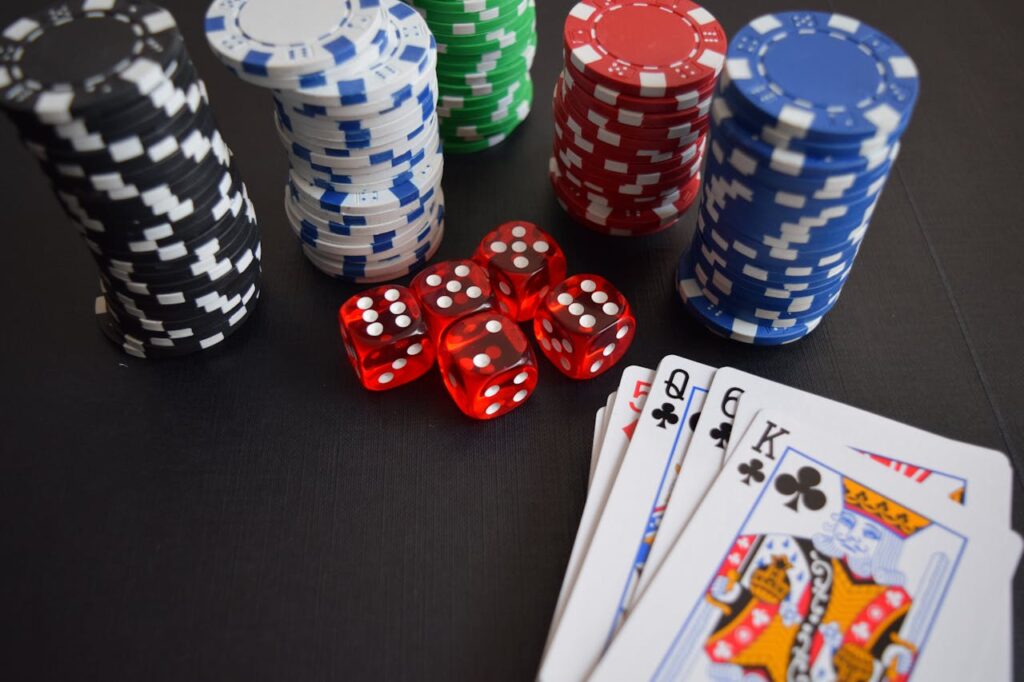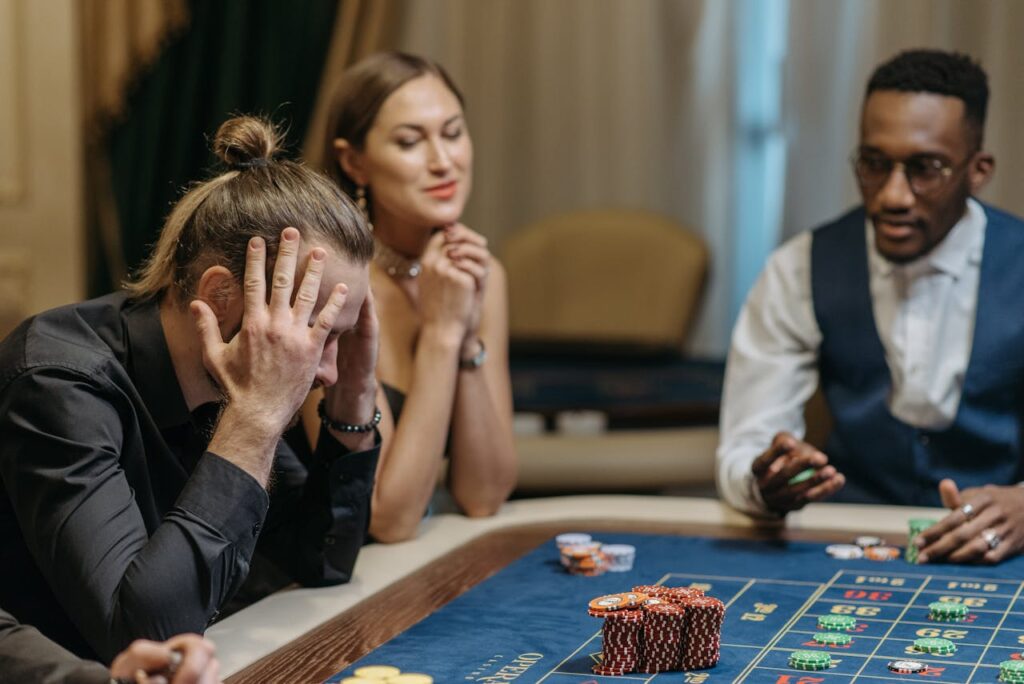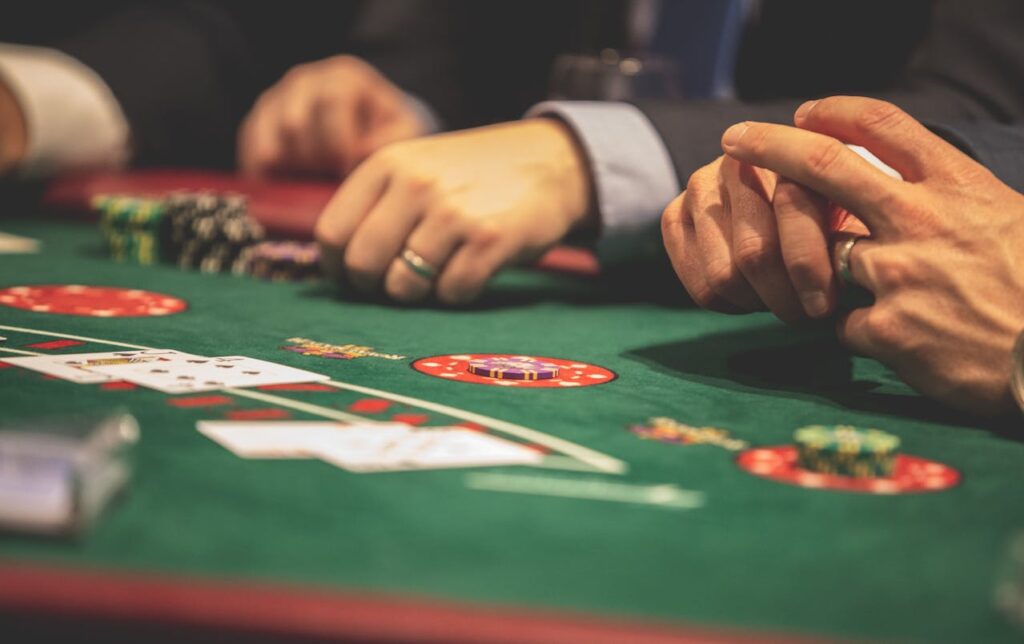In the realm of entertainment and chance, few activities captivate as intensely as gambling. Whether it’s the adrenaline rush of a winning hand or the suspense of a spin, gambling offers a unique blend of thrills and dangers. But beyond the excitement, it’s crucial to understand the complexities and risks that accompany this pastime.
From the psychology behind decision-making to the impact on personal finances and relationships, navigating the world of gambling requires both awareness and responsibility. Let’s delve into the fascinating dynamics of gambling, exploring its allure, its pitfalls, and the importance of approaching it with caution and clarity.
My Perspectives and Personal Insights

Gambling can be a fascinating yet complex activity for many people, including those who are deeply involved in it. From my personal observations, I’ve noticed that some individuals engaged in gambling don’t perceive it as problematic. They often believe they have a handle on their gambling habits, asserting they can stop whenever they choose. Interestingly, despite this confidence, many of them have been gambling for years without significant interruption.
In my own experience, I used to partake in gambling, particularly when I was younger and enjoyed it as a social activity with friends. However, over time, I came to realize a fundamental truth about gambling: while you may occasionally win, the odds are ultimately stacked against you. The allure of potential winnings can overshadow the reality that most participants will lose money in the long run.
Moreover, being in a casino environment can alter one’s perception of money. The atmosphere, filled with flashing lights, sounds of slot machines, and the thrill of the game, can create a distorted sense of value. What might seem like significant amounts of money outside the casino may suddenly feel less substantial within its walls. This shift in perspective can contribute to continued gambling, even when losses accumulate.
Ultimately, my decision to stop gambling stemmed from this realization: the odds of winning are not in my favor, and the thrill of the game does not outweigh the potential financial and emotional risks involved. It’s a personal choice influenced by understanding the nature of gambling and its effects on individuals over time.
Motivations Behind Gambling

People gamble for a variety of reasons, each driven by personal motivations and circumstances. The allure of gambling often stems from several key factors:
1. Entertainment and Excitement: Gambling offers a thrilling experience filled with suspense and anticipation. Whether it’s the spin of a roulette wheel or the flip of a card, the excitement of potentially winning big can be highly enticing.
2. Social Interaction: For many, gambling is a social activity that allows them to connect with others who share similar interests. Casinos, poker nights, and online gaming platforms provide opportunities for socializing and bonding over shared experiences.
3. Financial Gain: The potential to win money is a significant draw for many gamblers. The idea of turning a small stake into a substantial payout can be irresistible, especially in games of skill like poker or blackjack where strategy can influence outcomes.
4. Escapism and Relaxation: Gambling can serve as a form of escape from daily stresses or routine. It offers a break from mundane life and provides a temporary thrill or distraction.
5. Psychological Factors: Some individuals are drawn to gambling due to psychological factors such as the thrill-seeking nature or the desire to challenge oneself intellectually (e.g., in games of skill).
6. Emotional Reasons: Emotions play a significant role in gambling behavior. Some people gamble to experience highs and lows, seeking the emotional rollercoaster that winning or losing can bring.
Understanding the Dangers of Gambling

Gambling, while enticing for many, carries significant potential dangers that warrant careful consideration:
1. Financial Risk
One of the most immediate dangers of gambling is financial loss. The allure of potential winnings can lead individuals to wager more money than they can afford to lose. This can result in financial instability, debt, and even bankruptcy.
2. Addiction
Gambling addiction, also known as gambling disorder, is a serious psychological condition characterized by an uncontrollable urge to gamble despite negative consequences. It can lead to severe personal and financial hardships, affecting relationships, careers, and overall well-being.
3. Impact on Mental Health
Problem gambling is often associated with anxiety, depression, and other mental health disorders. The stress of financial losses and the inability to stop gambling can exacerbate these conditions.
4. Family and Social Impacts
Gambling problems can strain relationships with family members and friends. Secrecy about gambling activities, financial lying, and neglect of responsibilities can lead to distrust and emotional distancing.
5. Legal and Criminal Issues
In some cases, excessive gambling can lead to legal troubles, such as theft or fraud, to finance gambling habits. Legal repercussions can further complicate an already precarious situation.
6. Physical Health
The stress and anxiety associated with gambling addiction can also manifest in physical health issues, such as insomnia, headaches, digestive problems, and even substance abuse.
Understanding these potential dangers emphasizes the importance of practicing responsible gambling. Seeking support from reputable organizations such as Gamblers Anonymous can offer vital assistance. Therapists specializing in addiction counseling also provide valuable support. Additionally, gambling addiction helplines like the National Council on Problem Gambling are available to help those facing gambling-related challenges. Recognizing early signs of problem gambling and taking proactive steps can effectively reduce risks and avoid escalating issues.














